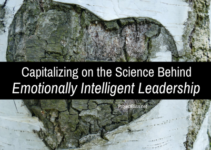Welcome the Challenges – They are Your Vehicle for Growth and Learning
Note: This article contains affiliate links. For more information, see my disclosure page.
I found myself at work with a stomach ache. I knew I wasn’t sick, and that it would probably be gone within a few hours. I knew this because it was Thursday, and my stomach always hurt on Thursday lately. Thursday was the day of my Project Terrier meeting. Project Terrier set out to achieve some very large goals, and would require a good deal of organizational change. However, we’d encountered obstacles. The project was not moving as quickly as we had hoped: we lost key players on our project team and there were sensitive issues that had to be worked out. These challenges slowed our progress and were behind schedule. This is why my stomach hurt. It was all due to stress.
I had been experiencing anxiety around this project for several weeks. However, thinking of anxiety and obstacles reminded me that I had the audiobook “The Obstacle is the Way” in my audio library. I’d purchased it several weeks ago, and it was time to give it a listen. I certainly had obstacles, and hoped this book would provide helpful insight.
In The Obstacle is the Way, author Ryan Holiday presents the works of the stoics: Seneca, Epictetus, and Marcus Aurelius. He takes their writings and distills them down to primary lessons, along with numerous historical examples. Holiday writes, “The impediment to action advances action. What stands in the way becomes the way.” Holiday explains that we should see obstacles as opportunities whenever possible. Obstacles are the channel through which we grow and learn.
This resonated with me. Holiday has taken some of the great stoic writings and distilled them down to the core messages, and it was exactly what I needed. I needed to shift my perspective to find the opportunity in the challenge. The challenge provided the chance to stretch and grow.
I realized that often it is best to move TOWARD what is difficult. By placing our focus on the challenge, we are able to dissect it and understand what is needed to work through it. This is the way forward.
Holiday explains the philosophy by using anecdotes and examples of historical figures pressing on in times of challenge, such as the pioneering spirit of the early American settlers and the endurance of those engaged in the civil rights movement. Thinking of Senator John McCain being held as a war prisoner by the North Vietnamese, and refusing the offer of release unless all other war prisoners were also released really put my challenge into perspective. Geez, it’s a meeting; it’s a project from which I’ll go home at night. My troubles didn’t seem so insurmountable after all.*
But shifting perception is only the beginning. Holiday presents the following three critical steps in overcoming obstacles:
“It begins with how we look at our specific problems – our attitude or approach. Then the energy and creativity with which we actively break them down and turn them into opportunities. Finally, the cultivation of an inner will that allows us to handle defeat and difficulty. It’s three interdependent, interconnected, and fluidly contingent disciplines: perception, action, and the will.
Being an optimist, I am quite experienced at shifting my perception. I reframe to find the positive. I know that we cannot control the world around us – only how we respond to it. But the stoic philosophy goes further – learn to embrace obstacles because they give you a chance to grow.
By viewing the obstacle as a compass, it provides focus on where to direct your energy. Look more closely to gain insight into how to address the problem. Break it down to find the opportunity inside. Embrace the challenge, move toward it, and overcome it. And by doing so, you not only succeed in your current endeavor, but you become stronger for it. You are more suited to face bigger challenges next time.
Holiday also adds that it can be helpful to shift the focus from yourself. When you focus on how your actions might benefit someone else, you can derive strength to move forward. When facing a challenge, don’t make it about you, but rather how you can make things better for someone else. Don’t see the problem as some special punishment thrown down to make your life difficult. Problems are not unique to you. There is a world beyond you filled with people who have dealt with worse. Be strong through the challenge and you will emerge stronger still.
The ideas presented were not new to me, but I found the book both helpful and inspirational. So inspirational, in fact, that I channeled that anxiety into the energy and focus needed to move Project Terrier forward. I looked more closely at what was causing anxiety, identified ways to address gaps, asked the team for input on how we might best move forward through certain challenges, and we rallied.
The message that we have a choice in how we view the challenges we face is ever relevant. We can turn and run, we can grumble and whine, or we can brace ourselves and welcome the opportunity to grow. “The challenge makes you better than if you had never faced adversity at all.” Throughout life you will continually encounter obstacles. But what was once an obstacle will cease to be one once you overcome it and learn from it. Each time, you will develop more strength and perspective. And each time you will emerge a better version of you.
In case you want to go right to the sources:
Epictetus, Discourses and Selected Writings
Additionally, somewhat – but not directly – related: a link to one of my favorite TED Talks: Kelly McGonigal: How to make stress your friend
*Please note that I am not unsympathetic to human tragedy, and my response to this book is in the context of my everyday challenges, and not those of grand human injustice.




I love this book too.
I was interested to hear you say that you asked the team for input, I think that is critical because regardless of or own attitude/perspective, it is often not easy to see the wood from the trees, because we are inevitably too close.
The Real Person!
Author Leigh Espy acts as a real person and passed all tests against spambots. Anti-Spam by CleanTalk.
Yes – thinking back on that now, I’m not sure what gave me the inspiration to ask the team, but it was such a great move. I realized that I didn’t have all the answers, and if I just ask them for ideas and input on the best way to move forward through some of the challenges, they were eager to brainstorm and offer suggestions!
I’ve mentioned meditation in my posts before, and I find also that if I allow myself some quiet space, ideas come. It’s hard to do that if I’m stressing out and pushing back on something. Flashes of insight come when we allow space for it.
Inspiring quest there. What happened after?
Good luck!
The Real Person!
Author Leigh Espy acts as a real person and passed all tests against spambots. Anti-Spam by CleanTalk.
Jerome – I keep coming back to this book over and over again! Highly recommend it!